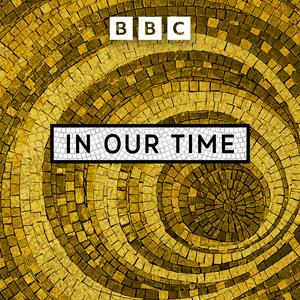Journalist, author and historian Misha Glenny presents his first edition of In Our Time, succeeding Melvyn Bragg who retired from this role last summer. Misha and his guests discuss the landmark work On Liberty by John Stuart Mill, published in 1859 and the increasing recognition for his wife Harriet Taylor Mill's contribution. The subject matter of the essay is ‘civil or social liberty: the nature and limits of the power which can be legitimately exercised by society over the individual’ and it argues that the sole end for which mankind may interfere with the liberty of action of anyone is self-protection and even then only to prevent harm to others. This essay became enormously popular and a foundational text for liberalism.
With
Helen McCabe
Professor of Political Theory at the University of Nottingham
Mark Philp
Emeritus Professor of History and Politics at the University of Warwick
And
Piers Norris Turner
Associate Professor of Philosophy at The Ohio State University
Producer: Simon Tillotson
Reading list:
Jo Ellen Jacobs (ed.), Harriet Taylor Mill, Complete Works (Indiana University Press, 1998)
Bruce L. Kinzer, Ann P. Robson and John M. Robson, A Moralist In and Out of Parliament: John Stuart Mill at Westminster, 1865-1868 (University of Toronto Press, 1992)
Christopher Macleod and Dale Miller (eds.), A Companion to Mill (Wiley, 2016)
Helen McCabe, John Stuart Mill, Socialist (McGill-Queen’s University Press, 2021)
Helen McCabe, Harriet Taylor Mill (Cambridge, 2023)
Piers Norris Turner, ‘The Arguments of On Liberty: Mill’s Institutional Designs’ (Nineteenth-Century Prose 47 (1), 2020)
Piers Norris Turner et al (eds.), John Stuart Mill and Harriet Taylor Mill, On Liberty with Related Writings (Hackett Publishing, forthcoming 2026)
Mark Philp (ed.), John Stuart Mill: Autobiography (Oxford University Press, 2018)
Mark Philp and Frederick Rosen (eds.), John Stuart Mill: On Liberty, Utilitarianism and other Essays (Oxford University Press, 2015)
Frederick Rosen, Mill (Oxford University Press, 2013)
Alan Ryan, The Philosophy of John Stuart Mill (Palgrave MacMillan, 1998)
Ben Saunders, ‘Reformulating Mill’s Harm Principle’ (Mind 125/500, 2016)
John Skorupski, Why Read Mill Today? (Routledge, 2006)
William Stafford, John Stuart Mill (Red Globe Press, 1998)
C. L. Ten (ed.), Mill: On Liberty: A Critical Guide (Cambridge University Press, 2008)
Nadia Urbinati and Alex Zakaras (eds.), John Stuart Mill’s Political Thought: A Bicentennial Reassessment (Cambridge University Press, 2007)
In Our Time is a BBC Studios production


